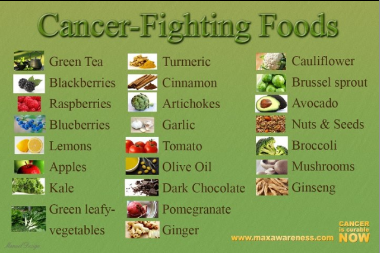Common Heart Disease Signs and Their Treatment

Image : Source
Heart disease doesn’t refer to a single disease; rather it refers to a group of diseases that affect the cardiovascular system. The numerous diseases that fall under its ambit include coronary artery disease, arrhythmia, heart attack, stroke, heart infections etc. Although heart disease is more prevalent among the older population, today the younger populace is increasingly being affected by heart diseases. This can mainly be attributed to the wrong lifestyle choices that we make and the stressful lives that we lead. There are certain common signs and symptoms which are associated with heart diseases. Having some amount of knowledge about these symptoms can help a person in taking preventive action which might well save a life.
The most common signs of heart disease are:
1. Chest Pain
Chest pain or angina is one of the common symptoms of heart disease. It can range from a feeling of heaviness and a burning sensation to a sense of pressure and discomfort. Angina results when the heart doesn’t receive oxygen rich blood in adequate amounts. When this happens the heart uses alternative forms of fuel to complete its action of pumping blood to different parts of the body. A product that is released during the burning of these fuel sources is lactic acid which begins to accumulate in the muscles causing chest pain. Sometimes people mistake chest pain to be heartburn but if it accompanied by other symptoms related to heart diseases then you better see a doctor.
2. Shortness of Breath
People with heart problems might face shortness of breath. It is more common in people who suffer from asthma or COPD but in certain cases a heart attack might also indicate this sign. If a person has difficulty breathing when doing some physical activity, then there could be a problem with the heart valves. Weakening of the heart muscles might also cause shortness of breath in an individual.
3. Pain in other parts of the body
The general conception is that in a heart attack pain radiates from the left arm. However, one need to remember that pain is not always confined to the left arm; it can originate in other parts of the body as well such as the back, shoulders, upper abdomens and jaws.
4. Swelling in Feet
In congestive heart failure, the pumping capacity of the heart decreases. As a result of this, blood is not able to move properly through the circulatory system. This causes building up of fluids which then enter into body tissues. Eventually this excess fluid gets accumulated in various parts of the body leading to swelling. If the left ventricle is not functioning properly then fluids get accumulated in the lungs leading to pulmonary edema. However, if the right ventricle starts failing then fluids begins to accumulate in the feet and legs. As the patient’s condition worsens the abdomen starts collecting fluids leading to weight gain.
5. Tiredness
People with heart problems have this constant feeling of a sense of tiredness. Even a simple act such as walking or carrying groceries might seem an onerous task. The heart is unable to pump enough blood to meet the body’s requirements. To help the heart deal with the situation, the body in turn draws blood from less important organs such as the limbs and supplies it to the heart. This causes a general feeling of tiredness.
6. Irregular Pulse
A rapid or irregular pulse can indicate a heart problem especially so if it followed by dizziness, shortness of breath and overall weakness. The one-odd missed heartbeat doesn’t matter but if this becomes a regular phenomenon then it becomes a cause for concern as this untreated symptom might lead to stroke or even death.
7. Lack of Appetite
People with heart problems often have appetite issues with the patients complaining of always being full or experiencing a lack of appetite. Due to the improper functioning of the heart, the digestive organs receive less blood which causes digestion related problems.
8. Sweating
If you feel that you are sweating more than you normally do, chances are that you might have a heart problem. When the arteries are clogged, the heart requires more energy to pump blood. To stabilize the rise in temperature the body sweats more to bring the temperature down.
Diagnosis of Heart Disease
If you experience any of the above symptoms for a considerable period of time, then it is high time you consulted a doctor. The doctor will run you through a series of tests to be able to reach a conclusion. Based on the results of the test, your family history and a physical examination he/she would be able to give a correct diagnosis regarding your condition. Some of the tests which you will have to undergo are mentioned below:
EKG (Electrocardiogram)
An EKG is a painless procedure which records the electrical activity of the heart. The results of this test establish the timing and strength of the electrical signals. It also helps to establish an idea about the rhythm of the heart.
Echocardiography
Echocardiography by the use of sound waves helps to establish whether the heart valves and heart chambers are functioning properly or not. It can also help to pinpoint the areas of the heart that are not receiving proper supply of blood and the muscles that are not contracting normally.
Stress testing Chest X-ray
This test requires of a person to perform strenuous physical activity during which images of the heart are taken which are then compared to images of the heart when at rest. If a person is not able to perform physical exercises, then the patient is given medication which increases the heart rate. This test will help to establish how well blood is reaching the heart and how the heart is pumping it.
Treatment
Depending upon what heart disease you are suffering from, the doctor would recommend you medications. In addition to following a prescribed medicine regimen, patents are required to make certain lifestyle changes which would delay the onset or the spread of the disease to some extent.
A Healthy Diet
A healthy diet is highly essential for maintaining a healthy lifestyle. A healthy diet comprises of whole grains, protein-rich foods, low-fat dairy products, fruits and vegetables. If you wish to keep your heart healthy then try to limit your intake of saturated fats and sugar-rich foods. Salt consumption should also be controlled as excess of salt consumption might put a person at risk of suffering from hypertension or high blood pressure.
Quit Smoking
Smoking is seen to increase the risk for heart diseases. If you are a regular smoker and are finding it difficult to let go of the habit, then join a support group. Passive smoking is another silent killer; therefore try to avoid it as far as possible.
Healthy Weight
People who are overweight and obese are more prone to suffering from heart diseases. If you are overweight, aim to lose weight. You can do this by curbing your calorie intake and going for regular exercise.
Stress
Stress and depression are seen to increase the incidence of heart diseases. To deal with stress people go for measures such as smoking, drinking, bingeing which all cause damage to the heart. Cultivate a support group with whom you can share your innermost feelings and go for methods and techniques that would help you to deal with your problems.



